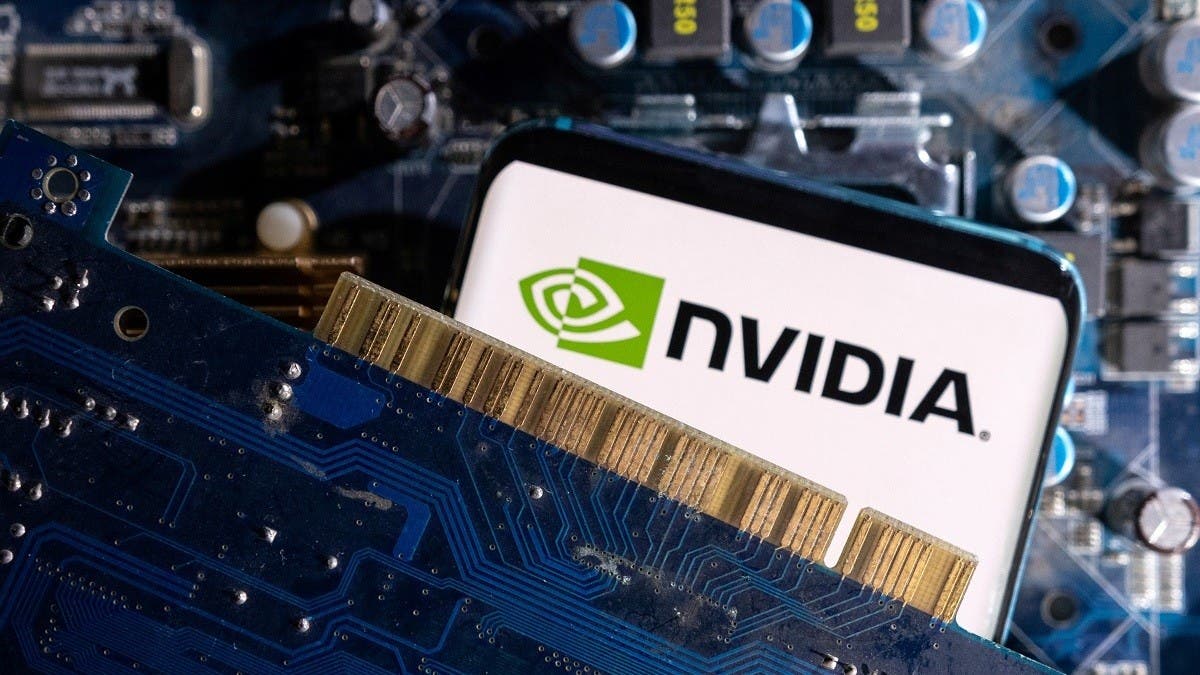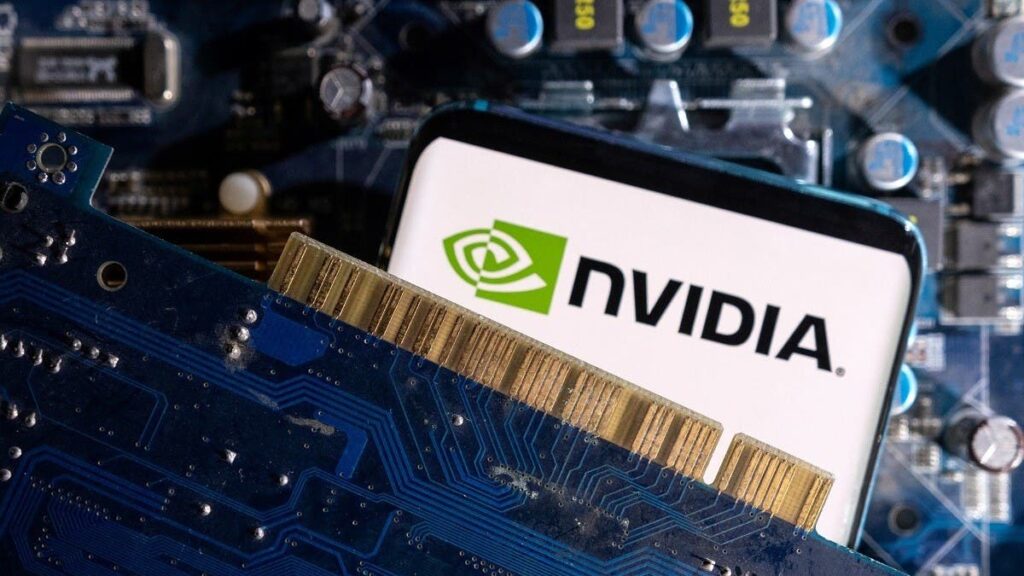
Nvidia said Wednesday its quarterly net profit rocketed by seven times year-on-year on demand for its chips to power artificial intelligence in data centers.
The California-based company reported a net profit of $14.9 billion, while its revenue of $26 billion was almost four times what it took in during the same fiscal quarter last year.
For all the latest headlines follow our Google News channel online or via the app.
Nvidia also announced a 10-for-one stock split effective June 7 to make owning shares more accessible. Nvidia shares were up nearly six percent to $1,003.50 in after-market trades.
“The next industrial revolution has begun,” Nvidia chief executive Jensen Huang said in an earnings release.
“Companies and countries are partnering with NVIDIA to shift the trillion-dollar traditional data centers to accelerated computing and build a new type of data center — AI factories — to produce a new commodity: artificial intelligence.”
Demand was strong for sophisticated GPUs (graphics processing units) tailored for the demands of training AI models, according to Huang.
In a promising sign, interest in generative AI is expanding beyond cloud computing titans to consumer internet, automotive, and healthcare companies as well as nations seeking to build sovereign AI, Huang said.
“Nvidia defies gravity again as AI companies globally continue to depend on its chips, networking hardware, and its software ecosystem,” said Emarketer senior analyst Jacob Bourne.
“We can expect that more bold innovative moves from Nvidia will help it maintain its industry position for the foreseeable future.”
Huang said he expects demand for Nvidia chips to outstrip supply for some time to come.
“We’re racing every single day” with Nvidia chips being snapped up as fast as they are made, according to Huang.
Europe cloud grows
US tech colossus Amazon on Wednesday announced its cloud computing division AWS will invest 15.7 billion euros ($17 billion) to expand its data centers in Spain’s Aragon region through to 2033.
The move comes on the heels of its announcement this month of a 7.8 billion euro investment to build a cloud center in Germany, and 1.2 billion euros in France to develop cloud infrastructure and logistical infrastructure of its parcel delivery service.
Huang has described Nvidia chips as being at the heart of datacenters transforming into “AI generation factories” with data a “raw material” turned into experiences such as prompt-generated videos made using OpenAI’s new Sora tool.
In regions outside the United States, “sovereign AI” systems are adding to demand for Nvidia chips, according to the company.
Nvidia chief financial officer Colette Kress described sovereign AI as a nation’s ability to create and control its own artificial intelligence.
Sovereign AI infrastructure is being built in Canada, France, Japan and many other countries, according to Huang.
The China market was a rare weak spot for Nvidia, with revenue in that country ebbing due to tighter US export controls imposed in October of last year, according to Kress.
Calls to further close the supply chain grew after the world discovered the powers of AI with the launch of ChatGPT, a tool that debuted in November 2022.
“Our business in China is substantially lower than the levels of the past,” Huang said on the earnings call.
“And, it’s a lot more competitive in China now because of the limitations on our technology.”
Nvidia reconfigured products to comply with US export constraints on chip technology, according to the company.
US export control regulations aimed at China and other markets including Vietnam and parts of the Middle East were expected to continue to cause sales of Nvidia data center chips to suffer in those markets.
Read more:
US sets up board to advise on safe, secure use of AI
Nvidia unveils flagship AI chip, the B200, aiming to extend dominance


